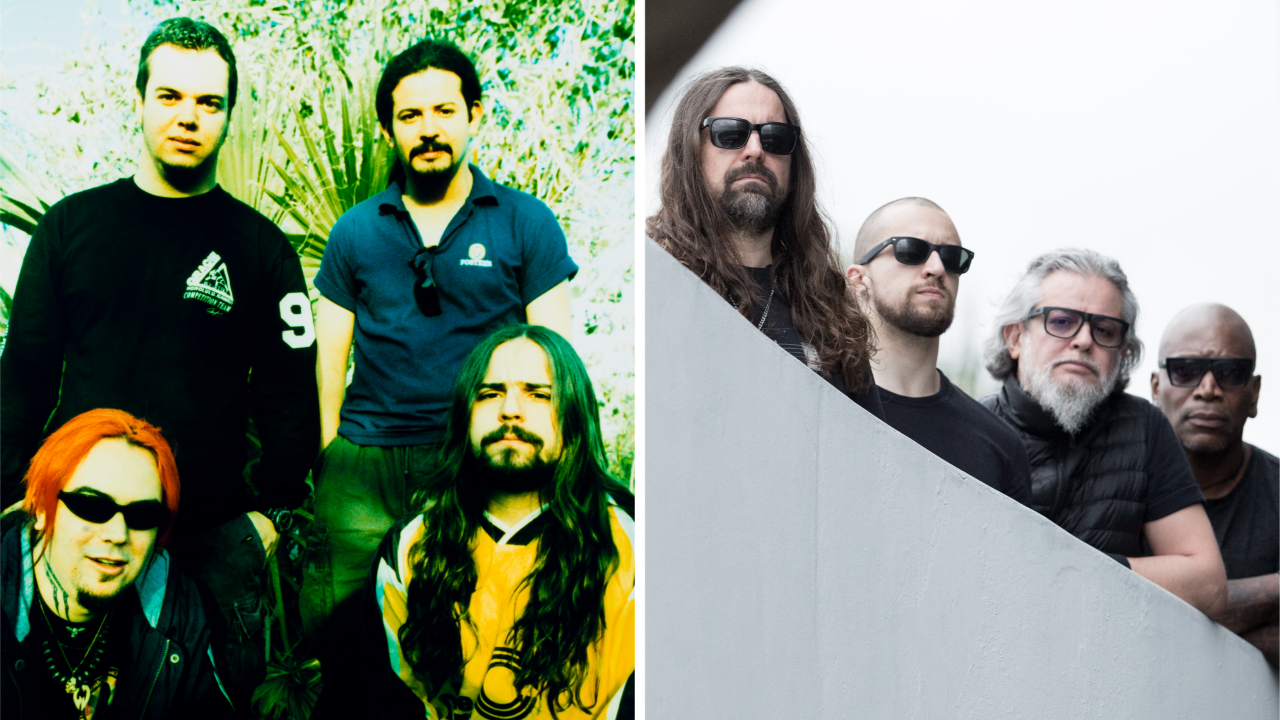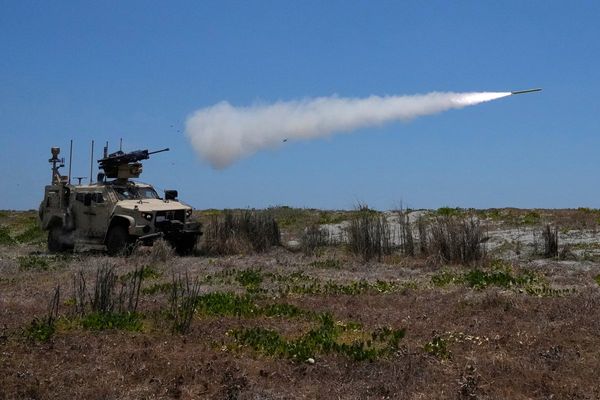
On December 16, 1996, Sepultura’s chief architect Max Cavalera left the band and, overnight, they went from being one of heavy metal’s brightest sparks to having their entire future in jeopardy. Not that I remember any of this, of course. I was eight weeks old.
As the news breaks that Sepultura are about to embark on one last tour before splitting up, I am a 27-year-old man. I’ve lived in seven different homes, started school, left school, graduated uni and carved myself a career in journalism. And, for almost the entire length of my life, people have been demanding that the Brazilian extreme metal legends should get their old singer back. It’s a wild statistic.
It should be said that, even though I first heard such seminal albums as Arise and Chaos A.D. two decades after they first came out, I fucking love Sepultura. Hearing their evolutionary early work stretch from the lo-fi thrash of Morbid Visions to the adventurously folky Roots connected the dots between so many other, younger bands I already loved. It also made those bands look a bit naff in comparison to the obvious masters.
From the moment Max and his drummer brother Iggor started Sepultura in 1984 through to the frontman’s aforementioned exit, they were a restless force, with every album leaving the rest of the scene to play catch-up. 1989’s Beneath The Remains polished the quartet’s fast-paced ferocity and announced them as the first South American thrash band to ink a major deal with a US label. Two years later, Arise took influence from the rising soundscapes of industrial and groove metal. Then Chaos A.D. revolutionised heavy music percussion with its unabashed samba flourishes before Roots became, arguably, the first flawless nu metal album not made by Korn. Countless songs from this world-beating series – Roots Bloody Roots, Refuse/Resist, Arise, Inner Self, Territory… – still hold pride of place in the heavy music zeitgeist and inspire up-and-coming artists.
For many – if social media comment sections are anything to go by, at least – this is where the story ends. Max vacated his post in what was basically his life’s work in ’96, with countless being too attached to his presence and compositions to even entertain a Sepultura without him. That the two parties still haven’t mended fences 27 years later only perpetuates the loyalists’ vitriol.
However, not only have Sepultura persisted since then: they remain every bit as distinct, principled and lethally heavy. The “new” Sepultura – composed of classic members Andreas Kisser and Paulo Jr alongside singer Derrick Green and, since 2011, drummer Eloy Casagrande – haven’t been as influential as their prior incarnation, but what band is 12 years after debuting? All the same, they’ve made a host of top-shelf albums.
2003’s Roorback and 2006’s Dante XXI saw Sepultura rediscover their venomous drive over a collection of tightly wound, barnstorming tracks. Eloy arrived with explosive purpose on 2013’s The Mediator Between Head And Hands Must Be The Heart, his furious playing underscoring the band’s pushes into black metal and the odd progressive torrent. By the time of what’s now become the Sepultura swan song, Quadra, critics who actually listened were claiming they’d recaptured the excellence of their ’90s masterpieces.
Even if Sepultura released nothing but crap post-Max, though (and admittedly there’s no defending stinkers like the inconsistent A-lex), the band have always been imperious live. At the 2023 Bloodstock festival, they were one of the tightest performers of the weekend. Eloy was passionate, technically spotless and in perfect harmony with Andreas and Paulo. No notes were out of place, the new stuff felt heavier and the old stuff felt earnestly honoured. Derrick – one of the most underrated veteran vocalists in extreme music – sounded as rabid as when he first blew out the band’s microphones in 1998. Not even Max and Iggor, now reunited under the “Cavalera” banner, have played Roots Bloody Roots or Ratamahatta as powerfully and charismatically in recent years as their ex-bandmates have.
Over the past three decades, Sepultura have undeniably faced both fan and commercial pressure to ditch their trajectory and cater to past glories by reuniting old lineups. That they haven’t, ironically, only reinforces that they’re the same band they’ve always been. Whether it’s Max or Derrick manning the microphone, Sepultura have always stood bravely against what the current scene dictates they should do and forged their own, incredible legacy.








